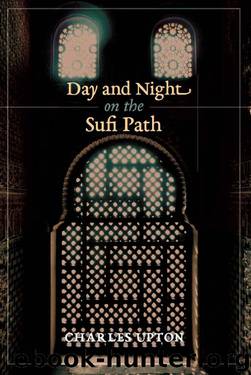Day and Night on the Sufi Path by Charles Upton

Author:Charles Upton [Upton, Charles]
Language: eng
Format: epub
Tags: Religion, Islam, Sufi
ISBN: 9781621381358
Google: ITLTsgEACAAJ
Amazon: 1621381358
Publisher: Sophia Perennis
Published: 2015-06-14T22:00:00+00:00
Virtues as Stations
A virtue established in the Heart is the same thing as a station, a maqam. Virtues are announced as states; when the repetition of a particular state is no longer necessary because it has dissolved the vice, or aspect of the ego, that was blocking the virtue out of which it grew, that virtue becomes established as a station. Below we will be analyzing the sort of states that appear as alternating pairs. These, however, in no way exhaust the states of the Heart, which are effectively innumerable; from one point of view, each waqt or moment of spiritual time is formed around a particular state, unique and never-to-be-repeated. Some of the more universally-recognized of the spiritual states include Repentance, Abstinence, Renunciation, Wariness, Vigilance, Discernment, Humility, Sincerity, Constancy, Gratitude, Patience, Trust in God, Aspiration, Veracity, Zeal, Courage, Mercy, Altruism, Constancy in Love, Generosity, Compassion, Shame, Submission, Reverence, Contentment, Serenity, Spiritual Poverty, Detachment, Discretion, Fear of God, Hope, Trustworthiness, Courtesy, Justice, Manliness, Dignity . . . and many more could be added. Ansari, in his famous Sad Maydan (One-Hundred Fields of Battle), enumerates a hundred different stations based on as many virtues. In the West we tend to see such virtues strictly in terms of morality—that is, as little more than arbitrary rules to be followed. It is much harder for us, apparently, to understand them also as states of mystical consciousness, as ways of knowing. This may be due to the fact that the culture of western Christianity—possibly following St. Augustine—has tended to separate the will from the intellect, and consequently to see a particular vice more as a will to transgress than as the result of a specific error or delusion or darkening of consciousness (modern anti-traditional Islam certainly shares this shortcoming), whereas in reality—as the theologians of Eastern Orthodox Christianity maintain—it is always both. Fear of God, for example, is based on the present knowledge that Allah is the only One who can claim Being intrinsically, that if I make this claim while in His Presence I am in the position of a thief who has just been apprehended, and whose stolen Being is about to be forcibly and shockingly re-possessed by its Owner. Likewise Altruism grows out of the knowledge that Allah is the Most Generous of the Generous, that
Download
This site does not store any files on its server. We only index and link to content provided by other sites. Please contact the content providers to delete copyright contents if any and email us, we'll remove relevant links or contents immediately.
The History of Jihad: From Muhammad to ISIS by Spencer Robert(2628)
Nine Parts of Desire by Geraldine Brooks(2369)
The Turkish Psychedelic Explosion by Daniel Spicer(2357)
The First Muslim The Story of Muhammad by Lesley Hazleton(2271)
The Essential Rumi by Coleman Barks(2047)
1453 by Roger Crowley(2031)
The Last Mughal by William Dalrymple(1858)
Trickster Travels: A Sixteenth-Century Muslim Between Worlds by Davis Natalie Zemon(1847)
Muhammad: His Life Based on the Earliest Sources by Martin Lings(1646)
God by Aslan Reza(1644)
by Christianity & Islam(1633)
A Concise History of Sunnis and Shi'is by John McHugo(1567)
No God But God by Reza Aslan(1545)
Magic and Divination in Early Islam by Emilie Savage-Smith;(1534)
The Flight of the Intellectuals by Berman Paul(1503)
Nothing to Envy by Barbara Demick(1450)
Art of Betrayal by Gordon Corera(1431)
What the Qur'an Meant by Garry Wills(1394)
Getting Jesus Right: How Muslims Get Jesus and Islam Wrong by James A Beverley & Craig A Evans(1342)
